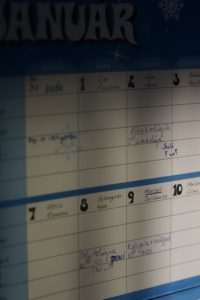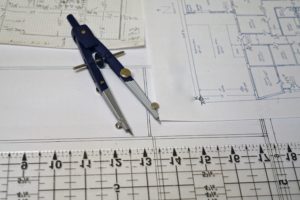How to plan to get the best results
“You should have planned for that.” How often have you heard those words? When I was growing up, there seemed to be a fall-to buzz phrase for teachers: “You knew you were going to have a test today. Why didn’t you study for it?” (That was code for: “You should have planned for it.”) This all means we need to know how to plan.
Me musing about planning
I don’t think that, as children, people are taught to plan. That seems to carry through for adults, also. Too often, at least in the United States, we tend to look to the person in authority (parents, bosses, etc.) for direction—in areas we should be managing ourselves. Planning is important in all facets of our everyday lives. If you want to be frugal and debt free you have to plan. If you want to develop planning skills, there are sources online and in print to help you learn to manage your resources: time, abilities, finances, etc. There’s a catch though. Sometimes you have to read about something (like event planning), then customize the information to fit your circumstances. Also, there are examples of planning techniques in most of my posts: the next section is a simple example.
Planning requires commitment
Because it gives me the best rate, I pay my car insurance every six months. Since I want to have the money to make the payment when it’s due, I set aside a set (planned) amount of money every payday.
I have a goal: Have the money for my car payment together by the time it’s due. I have a plan: Set aside the same amount of money every week to fund my goal. That would make paydays—and my regularly increasing balance—the milestones for measuring the progress towards my goal. Milestones are part of the plan. Reaching them shows my commitment to the plan.
First things first
When you make a plan, you need to take into account your values.
Simply said, I believe debt is wrong, from a Christian and a practical standard. So, when I make a plan it has to be designed to keep me from going into debt. Also, I try to make my plans efficient to avoid waste; being frugal, I hate waste.
Living life
As for just living: What’s coming up that will require your attention? (If you’re like most people it will be almost everything). Do you need to buy books for next semester? How long will those tires on your car last, and how much will it cost to replace them? Are you saving the money you’ll need for paying the taxes on your side gig? OBTW, do you remember his/her birthday is at the end of the week?
Everyday, things happen that you knew about yesterday, or last month, or even before that. How ready are you?
Time to evaluate
We all know that many important events come in cycles, but we are so occupied with just living that they “sneak up” on us. To help us remember each one, we need to mark them on the calendar. Then we need to check the calendar daily so we can keep them in mind.
Some things require less planning than others
There are events that require minimum planning and preparation, things that don’t require much thought or money that we do routinely, such as getting ready for work tomorrow. All you have to do is lay out your clothes, have your grooming supplies handy, and know where your car keys are. You do those things regularly, and you’re done. The plan is ingrained; it’s habit.
Along those lines
Usually, we hear “Some things require more planning than others, and since I talked above about recording all events on a calendar, it may sound strange to bring up things that aren’t necessary to record. But…if for example, you work the same schedule every week, you—probably—don’t need a reminder for that. Now, think about it…Some things are so routine that it is more important to have a reminder that there’ll be an exception to it, like unrelated appointments, meetings, etc. Those are things that call you away from your regular schedule, and you do need to give yourself reminders for them.
Some things do require (more) planning
There are some routine events that require a significant amount of planning. They’re routine in that they are cyclic, but they don’t happen all that often. (I’m thinking about things that happen once a year, or maybe, every few years.) These are things many people find themselves rushing to do or going over budget to do. Take your anniversary: Are you that guy who on your way home from work realizes it’s your anniversary? Do you fly through the mall and grab the first thing you see, then pay for it and run out? You’re probably not even sure your spouse will want what you picked up. You just hope they’ll like it.
You should have planned that better
Or, did you plan at all? Is it possible that it was pure luck you even remembered it was your anniversary? Do you remember that I hate waste? If your partner doesn’t like the gift you bought, it’s very likely to become waste. If nothing else, a waste of your money: Just today I heard a friend say she found a snuggie-type blanket at the thrift store—still in it’s sealed plastic bag, still in it’s unopened box with bits of Christmas wrap attached. I’d say that was an unappreciated gift. It was a waste of the giver’s money. But hey, kudos to the person who donated it, that allowed someone who wanted one to make a frugal purchase.
The plan
Goals and plans are two faces of a whole: the goal is the end; the plan is the process (steps) for reaching it. I’ve written an article personal goals this would be a good time to read it. Setting goals and making plans are almost the same thing. Anything you want to accomplish is much more likely to be achieved if you set goals and make plans than if you just “wing it.”
Plans for reaching your goals should be SMART: specific, measurable, attainable, realistic, and timely.
The unexpected
Occasionally, unforeseen things come up; things happen. It could be a lost wallet, a blown tire, or a sick child. It doesn’t necessarily have to be a bad thing. In fact, it could be a pleasant: (To a child home on break from a college on the other side of the country) “Oh, I’m so glad you’re here. I thought your bus wasn’t coming in until tomorrow.” (And this is followed by a huge hug.)
Let’s use this last as an example. This does not make for an emergency. So, your kid got home from school a day early. You’ve known about this break since the beginning of the semester. To be ready for it was the goal. Planning for it would have been a matter of money and effort—how much and what rate to save or spend to be ready. It’s likely that the day he left for college (maybe even, earlier) you started saving money to cover any extra expenses while he was home. (You had to know you’d have some.) You’ve made arrangements (financial and otherwise) for a special activity or two and—definitely—for buying some new clothes to take back with him. Dates have been set for visiting his favorite relatives (the ones close to home, anyway). The house and yard are ready for his friends to come by and hang out. Favorite snack foods are already in the pantry. You made a plan and worked it: He’s home. The goal is reached. You’re just surprised is all.
As for a true emergency
Emergencies happen. Often, you don’t even know what can happen until it does and then it’s the proverbial “too late.” That’s why professionals recommend that you have and emergency account that equals three to six months worth of living expenses. Of course, it takes time to build up that amount, so you dedicate a set amount of money that you add to the fund regularly. (I advise every time you’re paid.)
The secret to using an emergency account is the word “emergency.” To remove part or all of the funds from this account you must be dealing with a true emergency. Using this money should be your last ditch effort. It is not meant for alleviating something that is only an inconvenience. Do everything possible before spending the money in your emergency account…but absolutely, do not go into debt.
If you must use funds from your emergency account, you should immediately adopt the goal, and therefore, make a plan to replace them.
Back to my values
Don’t go into debt. Don’t tolerate waste. Deal honestly with others. Have compassion. Secure the future. Meet my needs by frugal means.
The above is definitely a short (and certainly, not complete) list of my values. Because I have my values, there are certain things I will, or will not, do without a specific plan.
Entertain an unexpected visitor, buy flowers for sick friend, go in with some others to provide a couple of days worth of food for a neighbor going through a hard time, travel to attend the funeral of a good friend’s parent: These are things that come up suddenly. Nobody, including me, can plan for all of them, but I do plan for the unexpected. Every payday, I put away a small amount of money for things like that.
On the other hand
Among things I won’t do (even if I have cash on me) is stop to eat on the way home if I’ve unexpectedly needed to work overtime. I have food at home, and home isn’t that far away. Buying something on the way would be a waste of money. Another thing I won’t do is buy a car on the spur of the moment. It must be a planned purchase.
An example: my criteria for a car
As soon as I buy a vehicle, I start saving for the next one. I start reading critiques on specific models to find a couple I’m likely to be interested in. And of course, I’ll know how much insurance, title, and tags will cost before I buy.
OK, I was talking values just a minute ago: I want quality for my money. Here is a list of some of the things I want in a car—
The car must be used. Because new cars depreciate almost 50% over the first three years, it must be at least three years old. It must have less than 80,000 miles and still be under factory warranty. Included on my list of equipment must haves are AC and a stereo. It must cost less than $10,000.00.
When the time comes that I need to replace my present ride, I’ll know what I’m looking for, and I’ll have enough money to buy it. I won’t go into debt to get it because I will have planned according to my values and used frugal principles to accomplish it.
By the way, I also keep in mind that I need to keep my present vehicle in good shape. l need to be able to replace tires and do maintenance procedures. Believe me, I plan and save for these things so that when the need arises I’ll have the money.
Conclusion
I’ve been talking about goals and planning to achieve them. To do this you need to take into account your values. (Hopefully, being frugal is one of them.) Your values will determine both what you want to achieve and what steps you will take to accomplish it. All goals should have a timeline with set milestones to mark your progress. Planning allows you to see the successes in your life.
Never miss another post like me on Facebook



